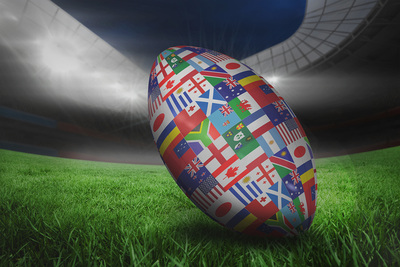
The Rugby Union World Cup is the biggest international rugby event in the world. It brings together the best teams and is often considered to be defining moments in a player’s career. What’s great about the tournament is that you get to see a mix of both Northern and Southern Hemisphere teams battle it out for the coveted prize of becoming world champions.
The tournament is run once every four years and switches host nation each time. Like most international tournaments in sport, a bidding process to host the World Cup takes place, before the governing body then decide who is eligible to host.
It’s not uncommon for several countries to host one tournament, which was the case in 1987 and 1991. As more and more countries are starting to get more competitive in the sport, the governing body are keen to broaden the market for the sport, highlighted by the appointment of Japan to host the 2019 tournament, making them the first country in Asia to do so.
- In This Article:
- Winners
- Overview
- Qualification
- Format
- Hosts
- Statistics
- History
Rugby Union World Cup Winners
| Year | Winner | Runner-up | Score | Host(s) |
|---|---|---|---|---|
| 2023 | South Africa | New Zealand | 12-11 | France |
| 2019 | South Africa | England | 32-12 | Japan |
| 2015 | New Zealand | Australia | 34-17 | England |
| 2011 | New Zealand | France | 8-7 | New Zealand |
| 2007 | South Africa | England | 15-6 | France |
| 2003 | England | Australia | 14-14, 20-17 AET | Australia |
| 1999 | Australia | France | 35-12 | Wales |
| 1995 | South Africa | New Zealand | 9-9, 15-12 AET | South Africa |
| 1991 | Australia | England | 12-6 | UK & Ireland |
| 1987 | New Zealand | France | 29-9 | Australia & New Zealand |
Overview
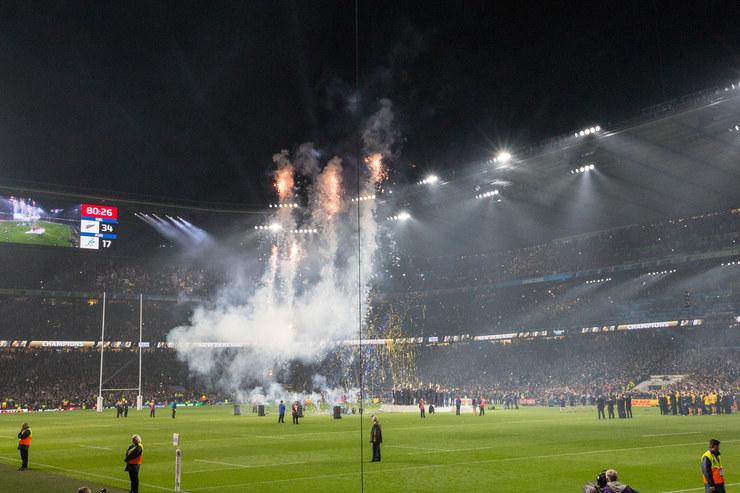
At the last World Cup in 2023, there were 20 nations that competed, a number that has risen from 16 since the 1999 World Cup. This will increase to 24 teams from the 2027 tournament. Teams from all over the world are able to qualify with a number of slots up for grabs from both qualification and teams that are automatically entered, based on a number of criteria that have been laid out and met.
The tournament usually starts in September time, which works well for both Northern and Southern Hemisphere, given that the weather is usually pretty good for both, avoiding freezing temperatures in winter and the heat of the summer.
It lasts around 6 weeks and throughout there are 48 games in total (2023) that will need to be played to determine the winner.
The World Cup is organised by World Rugby, who is the governing body for the international game. World Rugby was formed since 1886 and is currently based in Dublin, Ireland. The body includes 102 members, with 17 associate members, creating the board for the governing body.
Qualification
Twelve of the twenty places for the World Cup are made up by the teams that finished third or better in the previous World Cup group stage. Many people think this goes on world ranking, but this is not the case. These teams will get automatic entry into the tournament without having to go through any qualifying stages.
World Cup 2023 Pool Stage Final Standings
| Pool A | Pool B | Pool C | Pool D | |
|---|---|---|---|---|
| 1 | France Q | Ireland Q | Wales Q | England Q |
| 2 | New Zealand Q | South Africa Q | Fiji Q | Argentina Q |
| 3 | Italy Q | Scotland Q | Australia Q | Japan Q |
| 4 | Uruguay | Tonga | Portugal | Samoa |
| 5 | Namibia | Romania | Georgia | Chile |
The remaining 8 places for the 2023 World Cup were made up from a qualification process of matches in number of regions, namely Africa, Americas, Asia, Europe and Oceania. There was also a play-off and repechage system for those who didn’t gain automatic qualification.
- Africa – South Africa were automatic qualifiers with one place for qualifying winner and entry into the qualification tournament for the runner up
- Americas – Argentina automatically qualified with two further places for the qualifiers from a series combining North and South American teams
- Asia – Top ranked team (Japan) gained an automatic place in the competition with Asia Rugby Championship winner gaining a play-off versus Oceania Cup winner for a place at the World Cup with the loser entering the qualifying tournament
- Europe – In addition to the six automatic qualifiers (England, France, Ireland, Italy, Scotland, Wales), two places were given for best teams in the Rugby Europe Championship with the third-place team given a place in the qualification tournament
- Oceania – There were three automatic qualifiers (Australia, Fiji and New Zealand), one winner from a Samoa vs Tonga playoff. The loser of this playoff (Tonga) went on to play the winner of the Oceania Rugby Cup (Cook Islands) for a chance to play in the on the Oceania/Asia playoff. The team losing this tie enters the qualification tournament
World Cup 2023 Non-Automatic Qualifiers
| Team | Region | Method of Qualification |
|---|---|---|
| Namibia | Africa | Africa play-off winner |
| Uruguay | Americas | Won 2-leg play-off vs United States |
| Chile | Americas | Won 2-leg repechage vs Canada |
| Georgia | Europe | Won 2021/22 Europe Championship |
| Romania | Europe | Runner-up in the 2021/22 Europe Championship |
| Portugal | Europe | Won Final Qualification Tournament |
| Samoa | Oceania | Won 2-leg play-off vs Tonga |
| Tonga | Oceania | Won Asia/Oceania play-off vs Hong Kong |
Format of the Finals (2023)
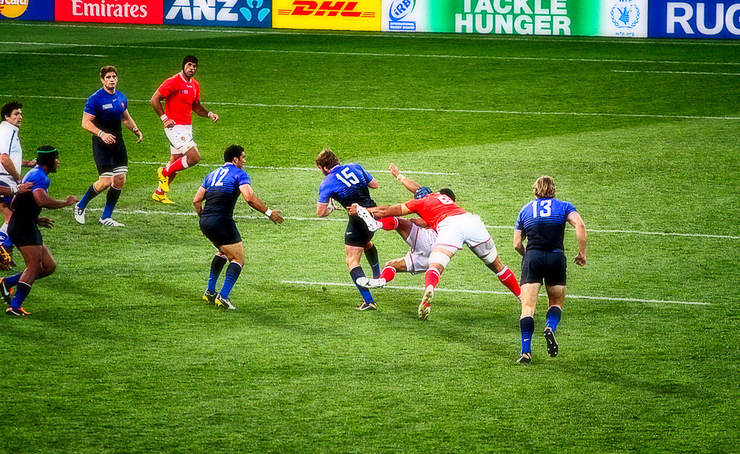
The World Cup ‘proper’ is split over two sections; a group stage and knockout stage. In 2023 there were four groups in total, each with five nations in that group. The teams that are in tournament are seeded based on world rankings at the draw stage which in the case on the 2023 tournament was December 2020. The four highest seeded teams will all be in different groups, before the next highest ranked are drawn into a pool and so on for the three bands of nations containing the automatic qualifiers. The non-automatic qualifiers fill the remaining spaces within the group, with the first Oceania, Europe, Americas and Asia/Oceania teams in band 4, and the Africa qualifier, second Europe and Americas qualifiers and the Final Qualification Tournament winner in band 5.
Rugby World Cup 2023 Pool Draw
| Pool | Band 1 | Band 2 | Band 3 | Band 4 | Band 5 |
|---|---|---|---|---|---|
| A | New Zealand | France | Italy | Uruguay | Namibia |
| B | South Africa | Ireland | Scotland | Tonga | Romania |
| C | Wales | Australia | Fiji | Georgia | Portugal |
| D | England | Japan | Argentina | Samoa | Chile |
Each nation will play each other once, which results in each nation playing at least four games in the competition. The winner and the runner up of each group will qualify for the knockout stages, which includes eight nations in total. From here, a straight knockout will apply, with the winning team progressing to the quarter final, semi-final and then the final.
The two losers from the two semi-finals will pay off in a 3rd/4th place play off, known as the Bronze Final. Tied games in the knockout rounds will go through to extra time and if needed, sudden death, where the first team to score a point will progress.
Host Nations
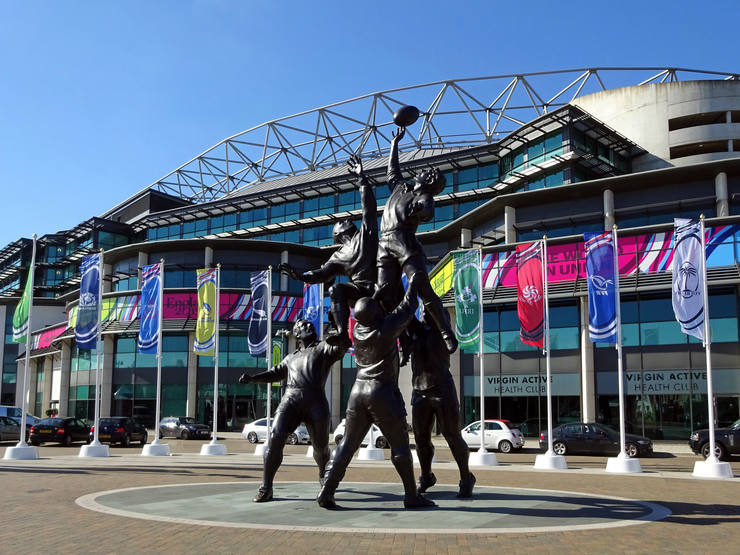
World Rugby ultimately decide who hosts each tournament. A vote is carried out by the rugby council and then awarded to the nation they deem best to host the tournament given their current set up. You’ll find that tournaments are usually announced around six years prior to that tournament starting, in order to give enough time to prepare fully for the event.
As mentioned earlier, in 2019 Japan were the first nation in Asia and the first nation outside of the higher profile rugby playing nations to host a world cup. Due to their already impressive sporting infrastructure, it was decided by World Rugby that they would be a good fit to host and grow the game around the world. Australia have already been awarded as hosts of the 2027 Rugby World Cup, which will be their second time as the sole host and the third time overall after co-hosting with New Zealand in 1987.
Rugby World Cup Hosts: 1987 to 2027
| Year | Host | Continent | Stadium Holding Final |
|---|---|---|---|
| 2027 | Australia | Oceania | TBC |
| 2023 | France | Europe | Stade de France, Paris |
| 2019 | Japan | Asia | International Stadium, Yokohama |
| 2015 | England | Europe | Twickenham, London |
| 2011 | New Zealand | Oceania | Eden Park, Auckland |
| 2007 | France | Europe | Stade de France, Paris |
| 2003 | Australia | Oceania | Stadium Australia, Sydney |
| 1999 | Wales | Europe | Millennium Stadium, Cardiff |
| 1995 | South Africa | Africa | Ellis Park, Johannesburg |
| 1991 | UK & Ireland | Europe | Twickenham, London |
| 1987 | New Zealand & Australia | Oceania | Eden Park, Auckland |
Statistics
Since it’s inauguration in 1987, only four teams have won the rugby World Cup. Three of those teams have come from the Southern Hemisphere in the form of Australia, New Zealand and South Africa. The only team from the Northern Hemisphere was that of England in 2003.
The most successful team is South Africa New Zealand who have won four World Cup’s and most notably, the last two in 2019 and 2023. They have also never lost in a World Cup Final. The next best are New Zealand with three wins from five finals, losing to South Africa in both 1995 and 2023.
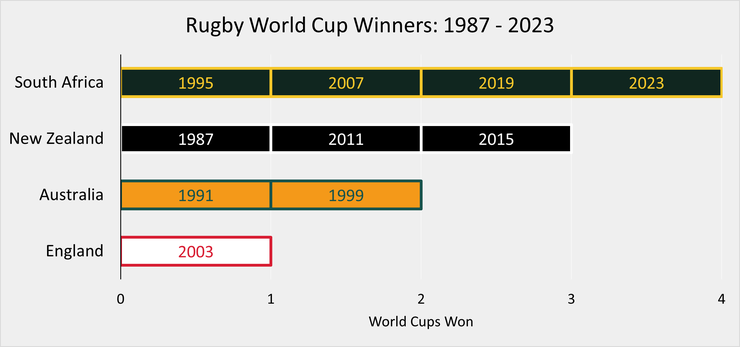
Jonny Wilkinson holds the record for the most points in the tournament’s history, with 277 to his name. The English fly-half was an integral part of the winning team in 2003 and represented his country in four World Cup’s, making 19 appearances in total.
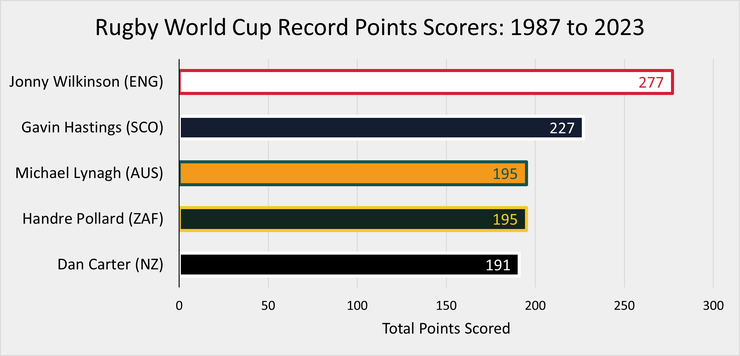
Simon Culhane holds the record for the most points scored in a single World Cup match with 45 against Japan in 1995, one ahead of Gavin Hastings of Scotland who scored 44 points when Scotland played Ivory Coast in the same World Cup. Two players are tied for the most tries in World Cup history, South Africa’s Bryan Habana and New Zealand’s Jonah Lomu, scoring a total of 15 tries each. They also hold the record of most tries in a single World Cup with 8, alongside Julian Savea and Will Jordan of New Zealand.
History
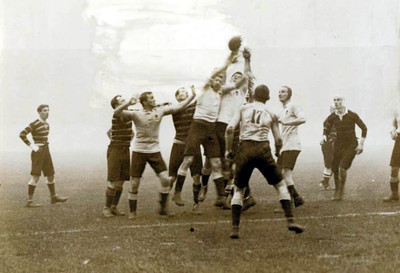
The Rugby World Cup was pretty late to the party in comparison to the development of rugby union. There were a number of international tournaments that were already taking place around the world, such as the Six Nations which started in 1883 as the Home Nations with just England, Ireland, Scotland and Wales taking part.
The sport has also featured several times in the Olympics back in the early 20th century, but was axed in 1924 and hasn’t been played at the games since.
The concept of a truly international tournament had been floated about for some years before it started in 1987. In fact, it dates back to the 1950’s when the first plans for a global tournament were first announced by the IRFB. It wasn’t until 1985 that the proposal was finally passed, voted on the top 16 nations at the time. The bid was won, 10 votes to 6, with Australia and New Zealand the driving forces behind getting the tournament up and running.
The first tournament in 1987 was hosted by Australia and New Zealand, with 16 nations taking part, all of which were automatically entered due to status within the World Rugby governing body.
As the game has grown, the tournament has also grown, initially starting with 16 nations taking part, but since 1999, twenty nations have competed at the finals, with the format remaining until the 2023 tournament. From 2027, the World Cup will be expanded to 24 teams with six groups for four teams and an additional knockout round, a round of 16, following the pool stage.
William Webb Ellis

There are few bigger names in the history of the sport than William Webb Ellis. It is widely regarded that Webb Ellis was the inventor of the sport when he indivertibly picked up a ball during a football match and ran with the ball in 1823. The game was taking place at Rugby School, which is where the name derives.
But, a lot of historians actually state that this is a bit of myth and whilst they were sure that Webb Ellis was the inventor of rugby, the story might be a little far-fetched. The reason why many are sceptical is that this story didn’t actually surface until four years after Eliss’s death in 1872, so the story couldn’t be verified.
As there is no substantial evidence to say otherwise, William Webb Ellis had a major role in the formation of rugby, regardless of how it actually came about.
To commemorate his feat, World Rugby decided that it would be fitting to name to the trophy after him, with its official name being the William Webb Ellis Cup.
New Zealand
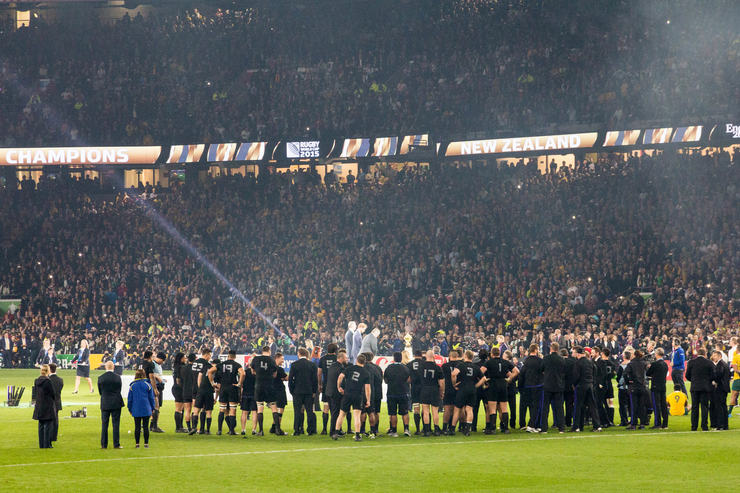
No team sets the benchmark in rugby quite like New Zealand have. They were the first team to win the World Cup and they were the first team to win back-to-back World Cups. They have since been surpassed by South Africa who have won the tournament on four occasions but they still hold a raft of individual and team World Cup records.
- Team Records
- Most World Cup Finals – 5 (1987, 1995, 2011, 2015, 2023)
- Most World Cup Semi-Finals – 9
- Most World Cup points scored – 2,888
- Most Points by a team in a single match – 145 vs Japan in 1995
- Individual Records
- Most appearances – 26, Sam Whitelock
- Most points in a single tournament – 126, Grant Fox in 1987
- Most points scored by in player in a single match – 45, Simon Culhane vs Japan in 1995
- Most tries in a single match – 6, Marc Ellis vs Japan in 1995
- Most World Cup conversions – 58, Dan Carter
- Youngest player to play in a World Cup Final – Jonah Lomu aged 20 years and 43 days in 1995
Whilst you could list a number of players who’ve been pivotal inclusions for New Zealand over the years, the likes of Dan Carter, Jonah Lomu and Sam Whitelock are probably the three biggest for New Zealand. As you can see from the records above, they all feature and they’ve all been able to contribute greatly for their nation at some point in their career.
England’s 2003 Triumph
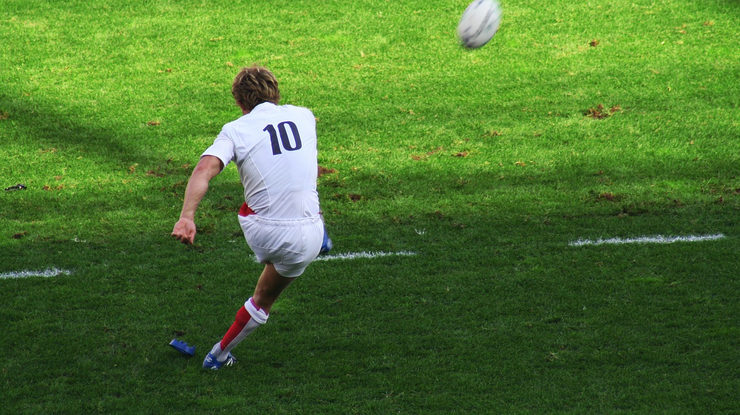
Following the trends of the first four World Cup’s, it was widely thought that the Southern Hemisphere would continue their domination of the tournament in 2003. Whilst England had been playing well on the international stage, few though that they would have the ability to overturn Australia or New Zeeland, especially in their own back yard.
In what was thought a tough group, England managed win all four of their games, with the most impressive being a 25-6 victory over South Africa. It was crucial for the English that they got this win as it meant in the knockout stages they would avoid both Australia and New Zealand on route to the final.
A tough victory over Wales in the Quarter finals 28-17 ensured a semi-final bout with France, a game they would go on to win comfortably 24-7. Whilst Jonny Wilkinson was already rated as one of, if not the best fly half in the world at the time, his feat of scoring all 24 points for England in the semi-final was one that many remember as a defining point in his career.
That was, until the final against hosts Australia. The game couldn’t have been closer with Elton Flatley kicking a penalty for the hosts as the clock ticked down to leave both teams level on 14 points a piece before heading into extra time. Wilkinson and Flatley would add another penalty kick each before the mantle was then passed back to Wilkinson to get England over the line, which he duly obliged, scoring a 30 metre drop goal with his right foot, the weaker of his two, to ensure a 20-17 victory for England, first Northern Hemisphere World Champions.
Players were then honoured for their work by the Queen, many receiving MBE’s and OBE’s. But it was head coach Clive Woodward who would gain the highest recognition of them all, becoming a Knight.